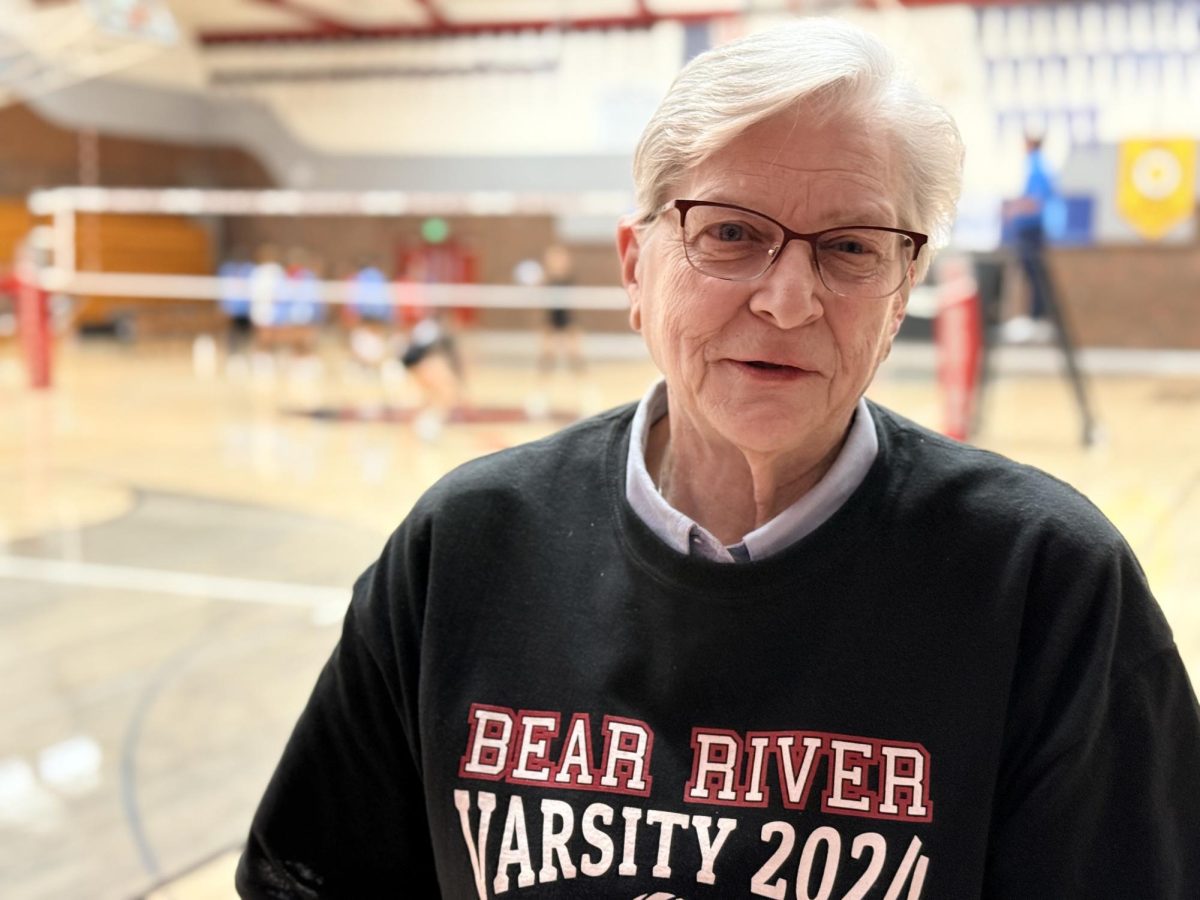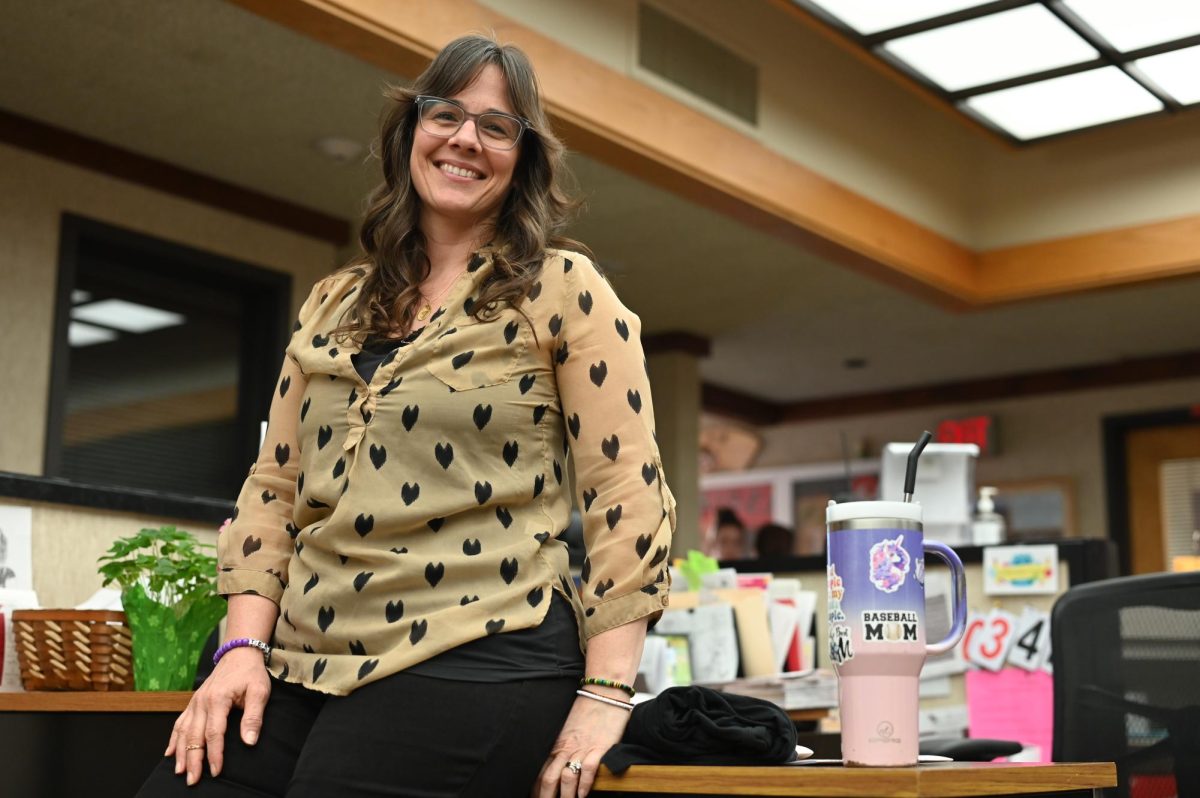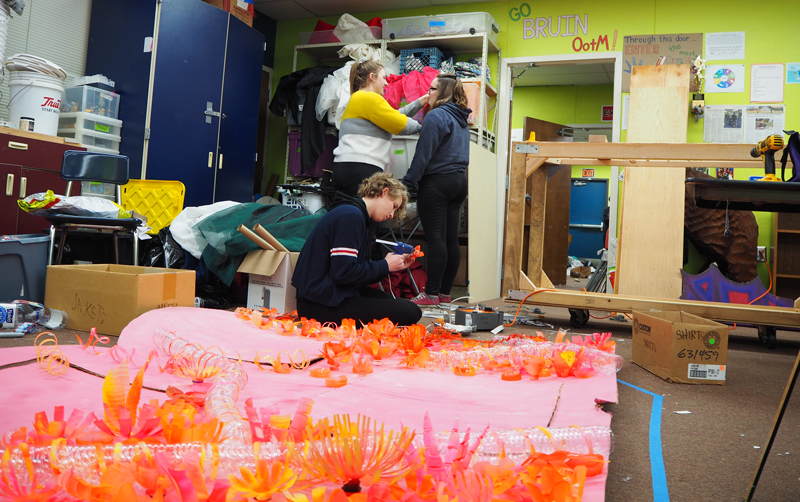Bear River is a big campus, and you can find clubs and organizations around every corner. Some of these clubs are well known, but one of them remains a mystery from the majority of Bruins, even though it has raised hundreds of dollars and gone to several world tournaments. This club is Odyssey of the Mind, and it’s one of the least well-known extra-curricular activities.
Odyssey of the Mind is a long-term program where, at the beginning of the year, each team of seven kids is given strict scoring guidelines and must create a seven minute-long skit to fulfill all of those requirements. This program is completely driven by the children who participate in it; they must write a script, build backdrops, and sew their own costumes, all while developing their creativity and acting skills.
Odyssey of the Mind Coach Kyle McDaniel talked about the intensity of the program.
“[Odyssey] shares a lot of similarities with a sports team,” he said. “Students need to meet for training, maintain communication between their teammates and coaches, and participate in weekend competitions. However … the time commitment is much more flexible and independently organized. While Odyssey does take a serious commitment in order to be successful, it is a program that is very understanding of students’ diverse interests and other responsibilities.”
Since Odyssey of the Mind is hands-off for the adults organizing it, the students have to do much of the coordination and all of the construction. Junior Connor Ronka pointed out how much of Odyssey of the Mind depends on the students.
“Well, Odyssey literally says, in the problem description, that adults can’t help [with the problem],” he said.
At Bear River, there are currently two student-run teams. These teams are given drastically different problems to create skits for. Junior Whitney Lybbert described what her team’s problem was about.
“Our problem is basically about Leonardo da Vinci and his workshop,” she said. “He’s given a problem that he has to solve by our ‘patron character’, and has to come up with inventions, and his ‘naysayer’ debunks one of his inventions, which is ironically used in modern society.”
Junior Arieal Swindell, a member of the second Bruin team, described her own team’s problem, and how it was different.
“Our problem focuses mainly on the mechanical parts of the skit rather than the acting and script, [which are more featured in] some of the other problems in Odyssey of the Mind,” she said.
As has previously been mentioned, Odyssey of the Mind is a very long-term commitment. Teams begin planning their performance around September, and competitions take place in the middle of spring. Swindell continued on to talk about the process she and her team went through to get where they are now.
“As juniors, all of our schedules are very diverse and busy, so we have lots of trouble all meeting at the same time, so that has been one of our biggest struggles,” she said. “Not only that, but just figuring out the mechanics for our creature, because it was all of our first times doing an engineering problem, since we were all very familiar with the acting aspect.”
Of course, with such a long-term commitment, proper scheduling is key to having a workable performance come competition. Mr. McDaniel elaborated on the typical schedules of the Odyssey teams.
“Odyssey teams meet once a week for at least one hour for training on solving Spontaneous Problems,” he said. “Teams also meet during Bruin Time to work together on their long term problems, and many teams, especially close to competitions, meet during the weekends and after school to put additional work into their problems.”
Mr. McDaniel went on to talk about the kinds of skills Odyssey members require to succeed.
“The most successful Odyssey students are those who are excited about facing unique challenges and comfortable with contributing while listening to others,” he said. “… Odyssey prioritizes teamwork skills, since everyone’s contributions are crucial for success. Everything else, all the other skills, are learned and developed through the program itself.”



































